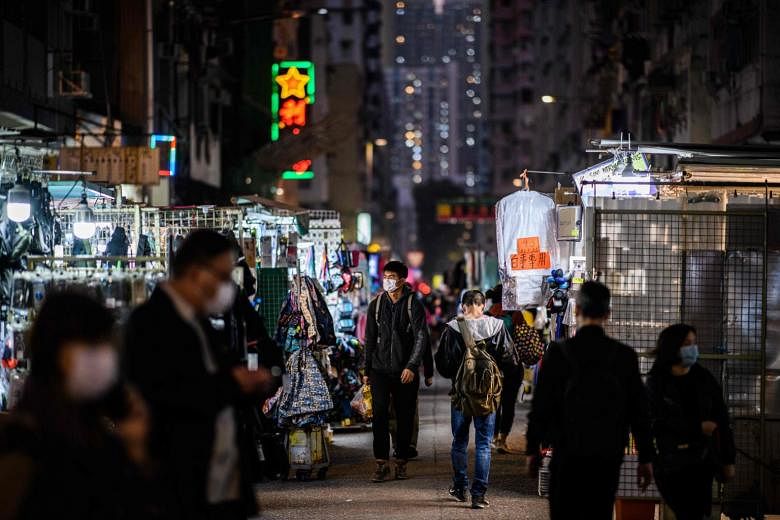GENEVA (AFP, BLOOMBERG) - The World Trade Organisation has agreed to establish a dispute resolution panel on the new US rule that all goods imported from Hong Kong must be stamped "Made in China".
The WTO's Dispute Settlement Body accepted a second request from Hong Kong to establish a panel "to rule on US origin-marking requirements for goods", a Geneva trade official said on Monday (Feb 22).
Hong Kong made a first request for arbitration at the Geneva-based global trade body on Jan 25, but the move was blocked by the United States.
Under WTO rules, a second request is, in practice, automatically accepted.
However, a resolution is far from near, as the settlement of trade disputes at the WTO usually takes years.
In July last year, then-US president Donald Trump announced the end of the preferential conditions granted by Washington to Hong Kong, after the imposition by Beijing of sweeping new security laws on the semi-autonomous territory.
A month later, US customs announced that goods imported from Hong Kong would have to be stamped "Made in China" rather than "Made in Hong Kong".
The new rules came into effect in November.
Hong Kong said the measures were inconsistent with a raft of WTO regulations including the rules of origin agreement and the technical barriers to trade agreement.
The territory described the requirements as "arbitrary, unilateral, unnecessary and unjustifiable", the trade official said.
The US delegation to the WTO, in a statement on Monday obtained by Bloomberg, backed the Trump administration's decision to label Hong Kong exports as "Made in China" and said the WTO had no right to mediate the matter because the organisation's rules permit countries to take any action to protect their "essential security interests".
The US delegation said: "The situation with respect to Hong Kong, China, constitutes a threat to the national security of the United States.
"Issues of national security are not matters appropriate for adjudication in the WTO dispute-settlement system."
Prior to 2016, WTO members generally steered clear of defending their trade actions on the basis of national security because doing so could encourage other nations to pursue protectionist policies that have little or nothing to do with hostile threats.
That changed in 2018, when the Trump administration triggered a cold war-era law to justify tariffs on foreign imports of steel and aluminium. In response, a handful of US trade partners, including Canada, the European Union, and China filed disputes at the WTO and a ruling in those cases is expected later this year.
Since then, more nations - including Saudi Arabia, India, Russia and others - have cited the WTO's national-security exemption in regional trade fights, leading trade experts to warn that such cases could erode the organisation's ability to mediate disputes.
The Biden administration on Monday said the US has consistently argued that national-security disputes are not subject to WTO review because it would infringe on a member's right to determine what is in its own security interests.
Meanwhile, the Biden administration said it would not agree to appoint new members to the WTO's appellate body, a seven-member panel of experts whom until 2019 had the final say on trade disputes involving billions of dollars worth of international commerce.
The Biden administration said it could not do so because the US "continues to have systemic concerns" with the functioning of the appellate body as have all previous administrations over the past 16 years.
Though the statement was not entirely unexpected, it confirms America's bipartisan frustration with the functioning of the WTO appellate body and the new administration's willingness to block new panellists until changes can be agreed.
Once Ms Katherine Tai is confirmed as the US Trade Representative (USTR), her office "looks forward to working with" WTO Director-General Ngozi Okonjo-Iweala to tackle the problems with WTO dispute settlement, including the unresolved issues over appellate-body overreach, USTR spokesman Adam Hodge said.
"These are long-standing, bipartisan concerns that we hope our trading partners will work with us to address," he added.
The Trump administration broke precedent when it refused to consider any nominees to fill vacancies on the panel until there were not enough to sign off on new rulings. As a result, the WTO's dispute-settlement system has been critically damaged because WTO members are now free to veto any adverse dispute rulings by appealing them into a legal void created by the appellate body's paralysis.

